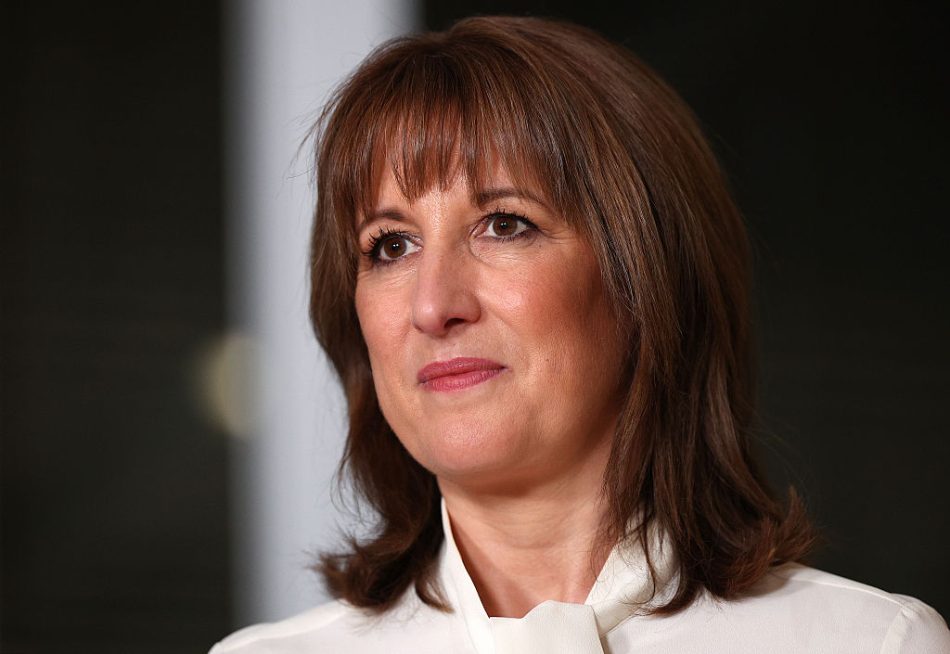Luis Rubiales, the former president of the Spanish football federation, is going to court for ‘The Kiss’. It was confirmed this week that Rubiales will stand trial in February 2025 for kissing Jenni Hermoso on the lips during the medal ceremony after Spain won the women’s football World Cup last August. Hermoso maintains the kiss was non-consensual.
Rubiales is now routinely described in articles as ‘disgraced’
Prosecutors are requesting that Rubiales pay Hermoso 50,000 euros (£42,000) in compensation and go to prison for two-and-a-half years: one year for the kiss – which, if not consensual, counts as sexual assault under Spanish law – and another 18 months for allegedly coercing Hermoso afterwards to say that it had been consensual.
This is the second trial that Rubiales will face for kissing Hermoso in front of millions of people last August. He has already experienced the worst kind of trial to which anyone can be subjected nowadays, regardless of the seriousness of their alleged crime: trial by media. Such trials are usually driven by emotion rather than reason, conducted in the echo-chamber of social media and hopelessly one-sided.
Rubiales’ media trial last year quickly resulted in a guilty verdict and sentence. After being suspended by Fifa as head of the Spanish football federation in the immediate wake of the scandal – which quickly overshadowed Spain’s historic victory – he was forced into resigning both that post and as Uefa’s vice president. He claimed then, and still claims, that the kiss was consensual.
Rubiales is now routinely described in articles as ‘disgraced’, an epithet that becomes standardised so quickly that its connotations can be easy to overlook. The same happened to Spain’s former King, Juan Carlos, back in 2020, when investigators began looking into allegations that he was involved in multi-million-euro fraud. Long before a criminal trial even began (and it never did), media outlets were opening articles with the phrase ‘Spain’s disgraced ex monarch’.
There are important differences between these two cases, though: most Spaniards didn’t care about the allegations against Juan Carlos, who remains a revered figure in Spain (the fraud investigation was shelved in 2022); and his alleged offence wasn’t broadcast on live TV around the world.
Rubiales’ defenders quickly fled his side during the global uproar last August, possibly because they thought the TV footage made it impossible to defend him. But it’s precisely the fact that the kiss was caught on camera that makes it possible to criticise Rubiales and argue that his punishment has already been excessive.
Did Rubiales go too far? Arguably yes, because to deny that outright is to discount Hermoso’s claim that she ‘felt disrespected’ and that the kiss was ‘unexpected and at no time consensual’. Should he have apologised immediately afterwards? Probably, yes. Rubiales didn’t do himself any favours by claiming that he was being persecuted by ‘false feminists’ – a phrase that many saw as charged with egotism and misogyny. Is the context of the kiss, the fact that it was planted on Hermoso’s lips in a World Cup medal ceremony in front of millions of people, a crucial factor here? That’s for a lawyer to argue and a judge to decide.
It is a judge’s job , and no one else’s, to determine whether Rubiales is guilty of sexual assault. And it might also now fall to a judge, if he finds the defendant guilty in February, to decide what penalty is appropriate – in addition to the punishment already meted out by the public and the football authorities.
There is another question of whether Rubiales will receive a fair trial. When Catalan separatists went before Spain’s Supreme Court in 2019 for arranging an illegal independence referendum two years earlier, it wasn’t just their supporters who feared that they would be tried by a politicised judiciary. When they were given prison sentences of up to 13 years, it was not unreasonable to suspect that they had been made examples of – used as deterrents.
It shouldn’t just be Rubiales’ supporters – if he has any left – who have similar concerns ahead of next February’s trial. Will he go before the judge as a doomed man, a predatory monster already convicted by consensus? Or will he be tried as a defendant, innocent until proven guilty, on the basis of the evidence presented in court? It is in the interests of society as a whole, not only those who think that this case has been blown out of all proportion, that the latter is true.







Comments